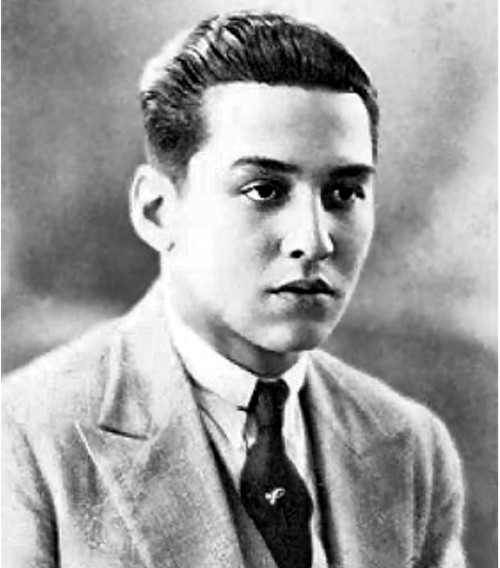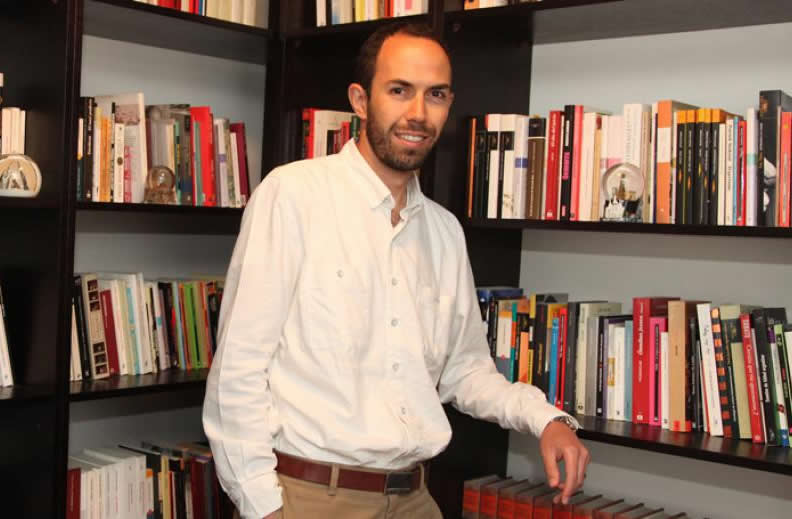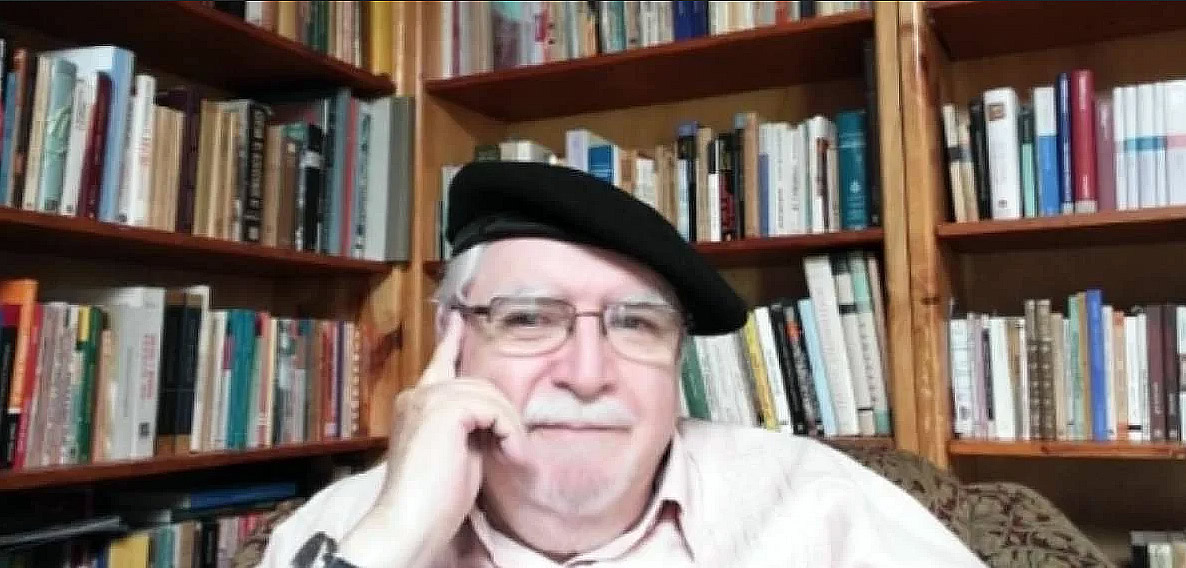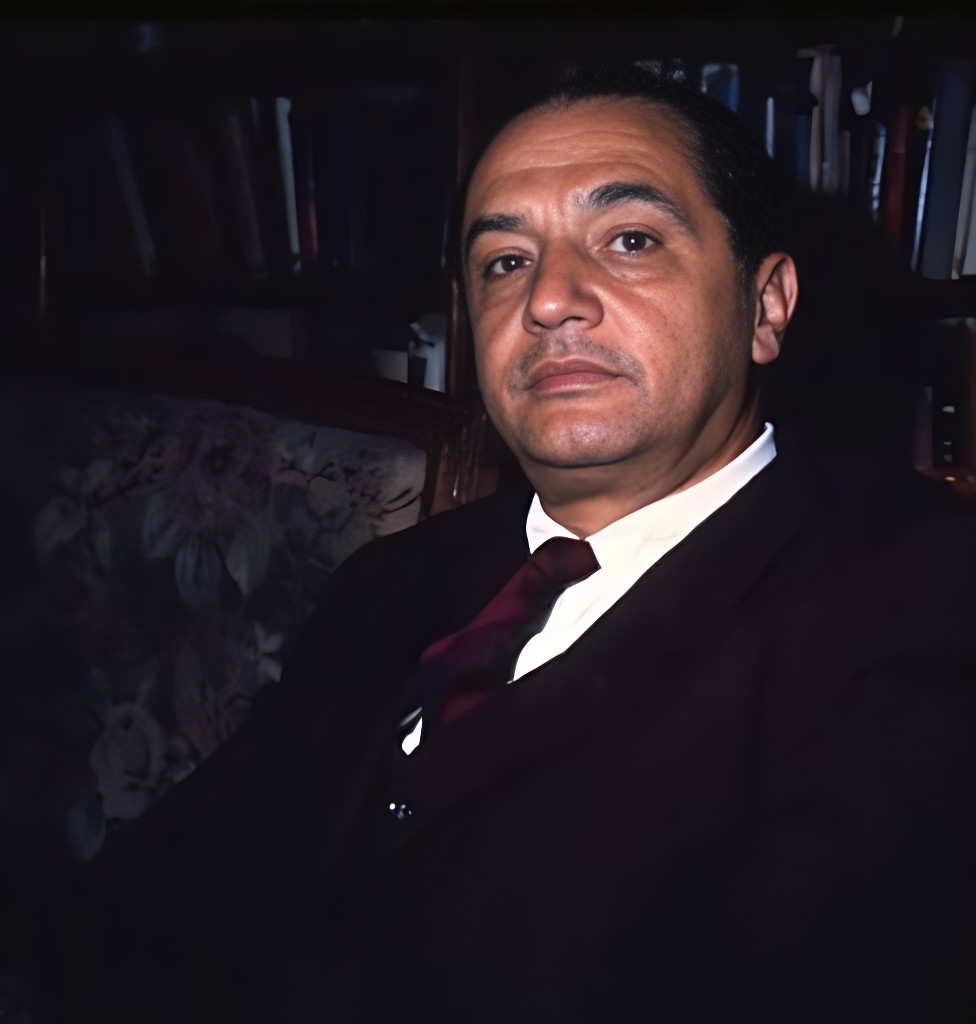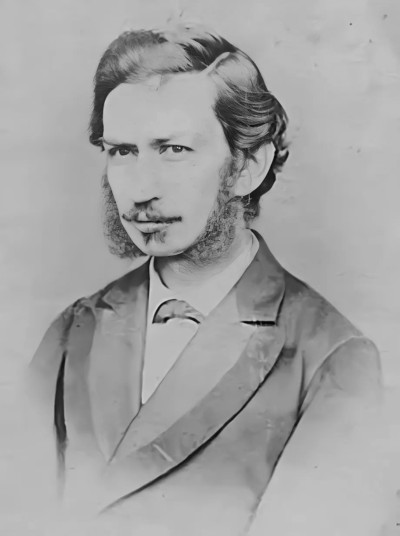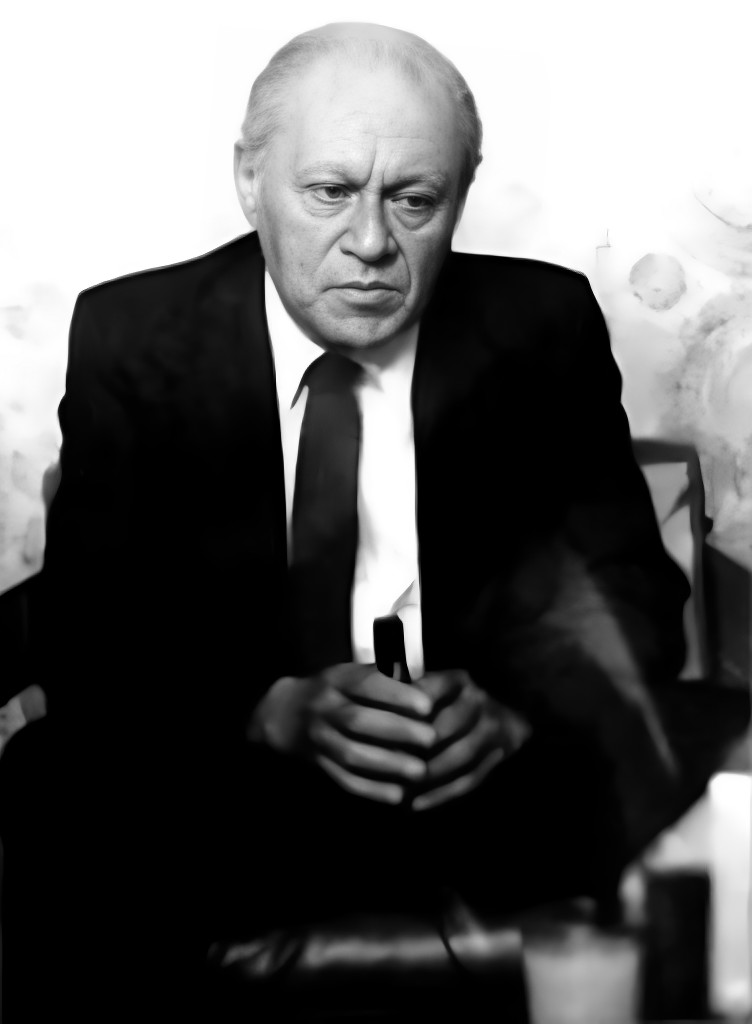José de la Cuadra Vargas (September 3, 1903 – February 27, 1941) is considered one of Ecuador’s greatest authors. De la Cuadra was a social realist novelist who wrote the short story La Tigra (1932) and the novel Los Sangurimas (1939). He was a part of the “Guayaquil Group,” a group of young social protest novelists from Guayaquil, Ecuador, in the 1930s, which included Enrique Gil Gilbert, Demetrio Aguilera Malta, Joaqun Gallegos Lara, and Alfredo Pareja Diezcanseco.
Continue reading “José de la Cuadra”Month: September 2020
The Joaquín Gallegos Lara National Fiction Prize
The Joaquín Gallegos Lara National Fiction Prize (Spanish: Premio Nacional de Narrativa Joaquín Gallegos Lara) is a prestigious literary award in Ecuador, named after the renowned Ecuadorian writer Joaquín Gallegos Lara. This prize honors outstanding contributions in the field of fiction, celebrating works that demonstrate exceptional narrative skill and innovation. Established to recognize and encourage literary talent within Ecuador, the award has become a symbol of excellence in storytelling, fostering a rich literary culture in the country. Each year, it draws submissions from a diverse range of authors, showcasing the depth and variety of Ecuadorian fiction. The winning works often explore complex themes and reflect the social, cultural, and historical landscape of Ecuador, contributing significantly to the nation’s literary heritage. The Joaquín Gallegos Lara Prize not only honors individual achievements but also highlights the importance of literature as a means of cultural expression and intellectual exploration in Ecuador. Since 1989 has been awarded yearly by the Municipality of Quito, Ecuador to the best national works in three categories: the short story, the novel, and theater.
Continue reading “The Joaquín Gallegos Lara National Fiction Prize”José Hidalgo Pallares
José Hidalgo Pallares (Quito, 1980) is an Ecuadorian economist, novelist, and short story writer. He is the author of the short story books La vida oscura (2003) and Historias cercanas (2005, winner of the Joaquín Gallegos Lara Prize), and El manual de la derrota (2019, winner of the Joaquín Gallegos Lara Prize). His novels include Sábados de fútbol (2007) and La búsqueda (2013). His short stories have also been published in anthologies in Ecuador, Argentina, Chile, Cuba and the United Kingdom.
Continue reading “José Hidalgo Pallares”Juan Valdano
Juan Valdano Morejón (Cuenca, December 26, 1939 – Quito, August 2, 2021) was an award-winning writer of over 30 books encompassing a variety of genres, such as novels, short stories and nonfiction. He was a corresponding member of the Royal Spanish Academy and an honorary member of the Ecuadorian Academy of Language. He was awarded Ecuador’s top literary award Premio Eugenio Espejo in 2020. He also won the Joaquín Gallegos Lara Prize three times. Director Camilo Luzuriaga adapted his 1990 historical novel Mientras llega el día into a film in 2004.
Continue reading “Juan Valdano”Jorge Enrique Adoum – La Caja de Pandora Interviews – Part 1 and 2 (Spanish Audio)
Jorge Enrique Adoum was among Ecuador’s most brilliant writers. In these interviews, made in the latter part of his life, Adoum shares his experiences as a poet, novelist, playwright, politician and diplomat on an Ecuadorian TV program called La Caja de Pandora. Adoum also discusses some of his books, including Ecuador Amargo (1949), Entre Marx y Una Mujer Desnuda (1976), and De Cerca y de Memoria: Lecturas, Autores, Lugares (2002). Adoum was born in Ambato, Ecuador in 1926 and died in Quito, Ecuador on July 3, 2009. He was awarded the nation’s top literary award Premio Eugenio Espejo in 1989.
Text Deformation and Paratexts in the English Translation of Huasipungo, by Jorge Icaza
Trabalhos em Linguística Aplicada
On-line version ISSN 2175-764X
Trab. linguist. apl. vol.57 no.1 Campinas Jan./Apr. 2018
http://dx.doi.org/10.1590/010318138651619354831
DOSSIÊ
TENDENCIAS DEFORMANTES Y PARATEXTOS EN LA TRADUCCIÓN AL INGLÉS DE HUASIPUNGO, DE JORGE ICAZA
TEXT DEFORMATION AND PARATEXTS IN THE ENGLISH TRANSLATION OF HUASIPUNGO, BY JORGE ICAZA
Authors
- María del Pilar Cobo González – Universidad de Buenos Aires, Buenos Aires, Argentina. [email protected]
- Roberto Bein – Universidad de Buenos Aires, Buenos Aires, Argentina. [email protected]
Jorge Icaza reading from his prose (Spanish audio)
Ecuadorian novelist and playwright Jorge Icaza (1906-1978) reading from his prose. Recorded May 2-3, 1961, at the Casa de la Cultura Ecuatoriana, Quito.
Continue reading “Jorge Icaza reading from his prose (Spanish audio)”Jorge Icaza
Jorge Icaza Coronel (Quito, June 10, 1906 – Ibidem, May 26, 1978) is indisputably the most renowned Ecuadorian author of the 20th century. His impactful storytelling, exemplified in critically acclaimed novels such as “Huasipungo” and “El Chulla Romero y Flores,” presented an unflinching portrayal of Ecuadorian societal conditions, particularly the trials of indigenous and mestizo communities. Icaza’s “Huasipungo,” which brought the issue of rural exploitation to the global stage, has been translated into more than 15 languages, including two English versions, signifying his far-reaching influence. His status as Ecuador’s literary giant is not just confined to his homeland; his work has significantly shaped Latin American literature. His later role as Ecuador’s ambassador to Russia further exemplifies his multifaceted contributions. Icaza’s legacy has transcended time; his work continues to inspire and influence, marking him as a towering figure in Ecuadorian and Latin American literature of the 20th century.
Continue reading “Jorge Icaza”Entre Marx y Una Mujer Desnuda (1996 Film) Spanish Audio
Directed by Camilo Luzuriaga, this 1996 movie is an adaption of Jorge Enrique Adoum’s 1976 novel Entre Marx y Una Mujer Desnuda (Between Marx and a Naked Woman). Spanish Audio only.(If someone has a version with English subtitles, please share).
“One of the fest’s major surprises is this startlingly inventive and sophisticated, beautifully done film from tiny Ecuador… packed with wit, energy, passion, intelligence, high style and memorable characters… the movie is wildly creative and funny.”
Michael Wilmington of the Chicago Tribune
Storyline: An author gets lost between the book he is writing and the reality and a love that does not exist and the ideals of revolution.
Continue reading “Entre Marx y Una Mujer Desnuda (1996 Film) Spanish Audio”Jorge Enrique Adoum Interviewed on CUNY TV (1998) Spanish Audio
Taped: 3/6/1998)
Length: 28:31
Hosts Jose Maria Conget and Raquel Chang-Rodriguez interview Ecuadorian writer, poet, politician and diplomat, Jorge Enrique Adoum, about his books. “Ecuador Amargo” and “Entre Marx y una Mujer Desnuda,” a novel that was made into a film.
Continue reading “Jorge Enrique Adoum Interviewed on CUNY TV (1998) Spanish Audio”Juan León Mera
Juan León Mera Martínez (Ambato, June 28, 1832 – Ambato, December 13, 1894) was an Ecuadorian poet, novelist, essayist, politician and painter. In 1865 he penned the lyrics for Ecuador’s National Anthem “¡Salve, Oh Patria!” and in 1879 he wrote the novel “Cumandá” which is regarded as Ecuador’s first full-length novel. The novel’s complex characters, lyrical prose, and riveting plot, set against the backdrop of the Amazonian jungle, have made it a revered classic that continues to captivate readers to this day. Juan León Mera was a member of the Ecuadorian Academy of Language, and a corresponding member of the Royal Spanish Academy of Language.
Continue reading “Juan León Mera”Demetrio Aguilera Malta
Demetrio Aguilera Malta (Guayaquil, May 24, 1909 – Mexico, December 28, 1981) was a multi-talented artist and diplomat born on May 24, 1909, in Guayaquil, who excelled in various fields such as novel writing, short stories, painting, film making, and playwriting. He gained prominence with his book of short stories “Los que se van: cuentos del cholo y del montubio” in 1930, co-authored with Joaquín Gallegos Lara and Enrique Gil Gilbert. Some of his other noteworthy works include the novels “Don Goyo” (1933), “Seven Serpents and Seven Moons” (1970) which was translated into English by Gregory Rabassa, and “El secuestro del General” (1973). In 1981, he was awarded the Premio Eugenio Espejo, the highest literary honor in the country.
Continue reading “Demetrio Aguilera Malta”
